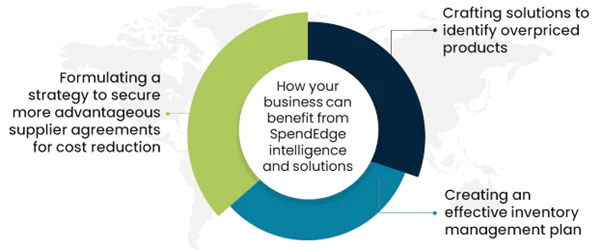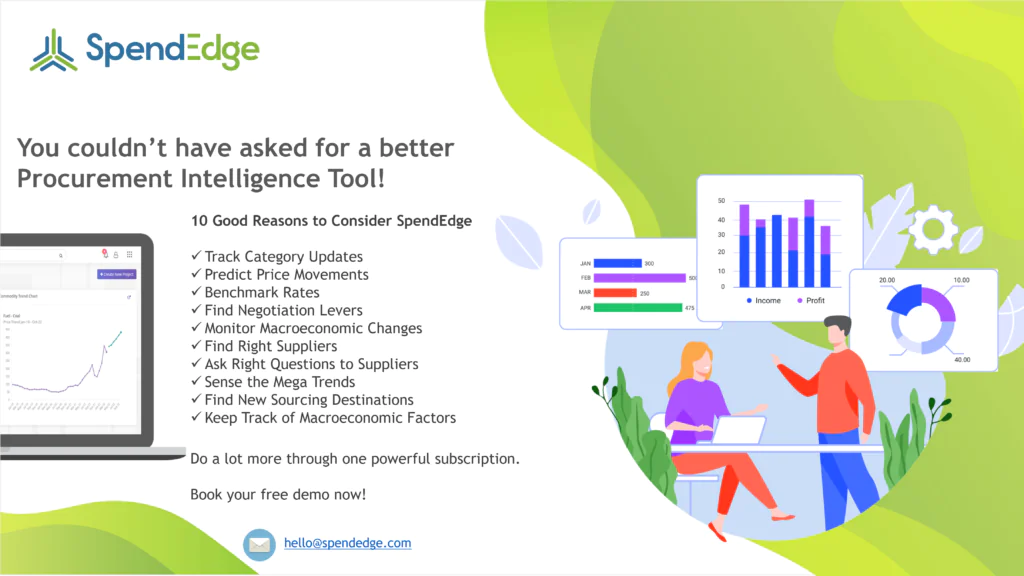By: George Mathew
Should-cost analysis has evolved into a pivotal practice in procurement, moving beyond a simple tool to a critical strategy. By estimating product or service costs based on various factors, such as materials, labor overhead, and profit margins, it equips organizations with deeper insights for negotiations and operational enhancements. Positioned at the intersection of product development, cost engineering, and procurement, should-cost analysis fosters collaboration and empowers leaders with evidence-driven strategies for supplier negotiations and overall operational improvement.
In today’s swiftly changing procurement environment, organizations are encountering increasingly complex challenges in managing supplier relationships and optimizing procurement operations. Advanced digital applications enable should-cost analysis to seamlessly integrate into existing procurement processes and systems, streamlining workflows, enhancing collaboration across cross-functional teams, and equipping organizations to effectively address modern challenges throughout the product lifecycle.
Key aspects of cost analysis in driving operational efficiency, strategic decision-making, and sustainable growth:
Enhanced negotiation leverage and cost reduction
Should cost analysis delves beyond the upfront purchase cost, uncovering concealed expenses across the entire product lifecycle, including materials, labor, overhead, and disposal costs. This holistic viewpoint enables the identification of potential avenues for cost reduction. By comprehending the true expenses associated with a product or service, it facilitates more effective negotiations with suppliers, challenging exaggerated markups, and proposing pricing rooted in practical cost breakdowns. Should cost analysis provides the ability to compare cost projections with industry standards or competitor pricing strategies, ensuring avoidance of overpayment and strengthening the position during negotiations.
Enhanced strategic sourcing decisions
Should cost analysis aids in evaluating potential suppliers beyond merely considering price. Assessing their efficiency, manufacturing processes, and material sourcing practices allows for the selection of partners who can deliver value beyond the initial quote. Should cost analysis can uncover areas where alternative materials, production methods, or design changes can result in significant cost reductions without compromising quality or functionality. By sharing the “should cost” insights with qualified suppliers, it fosters collaboration to identify mutually beneficial cost-saving opportunities throughout the supply chain.
Improved efficiency and risk management
Should-cost analysis advocates for standardized procedures in cost analysis, enhancing procurement efficiency and minimizing administrative overhead. By grasping the authentic cost determinants, companies can pinpoint risks linked to raw material scarcity, supplier interruptions, or fluctuating market dynamics, enabling proactive risk mitigation strategies. This approach hinges on data-driven and factual analysis, diminishing dependence on instinct or intuition in procurement deliberations, thereby fostering more enlightened and strategic sourcing decisions.
How SpendEdge can aid businesses in addressing cost optimization challenges through the should cost model:

Crafting solutions to identify overpriced products
Our specialist advisors develop a robust cost analysis framework that utilizes both internal and external data sources to assess the true cost of products. Utilizing advanced analytics and modeling techniques, they dissect costs into various components such as materials, labor, overhead, and transportation. Our experts implement should-cost analysis methodologies to establish benchmarks for expected costs based on industry standards and product specifications. They offer clients detailed cost breakdowns that clearly identify the underlying cost drivers for each product or component, highlighting key cost drivers and their respective impact on overall product costs. This enables clients to prioritize cost-saving efforts effectively.
Creating an effective inventory management plan
Our experts conduct extensive interviews with industry experts and develop a robust inventory management plan that incorporates should-cost analysis and models. These insights allow businesses to pinpoint the optimal timing for stocking raw materials, avoiding cost overruns and ensuring efficient stock levels. Leveraging expert knowledge on market trends, supplier dynamics, and pricing mechanisms, our experts offer a strategic framework for decision-making. Continuous monitoring and adjustment ensure adaptability to changing market conditions, enabling businesses to optimize their inventory practices and maintain competitiveness.
Formulating a strategy to secure more advantageous supplier agreements for cost reduction
Our experts perform a detailed should-cost analysis for the products or services, comparing it with the quotes provided by suppliers to identify areas of potential cost savings. They utilize insights gained from market research, should-cost analysis, and objective cost evaluation to inform the negotiation strategy. The focus lies on creating value for both parties rather than solely seeking the lowest price. Tactics such as bundling purchases, volume discounts, and performance-based incentives are used to secure favorable terms.
Success Story: How we helped a leading pharmaceutical company in optimizing financial performance and driving business growth:
Our client is a renowned pharmaceutical company based in Belgium, recognized for manufacturing a variety of life-saving medications.
The client aims to optimize procurement costs by identifying overpriced products in their supply chain.
Our experts at SpendEdge conducted Our experts conducted thorough should-cost analyses for vital pharmaceutical products, using historical data, industry benchmarks, and market trends to identify cost drivers. Collaborating with industry peers, they optimized supplier networks and employed advanced analytics for data-driven decision-making. This enabled them to pinpoint overpriced items and develop precise strategies for cost reduction and contract renegotiation.
Our solutions helped the client to effectively identify overpriced products in the pharmaceutical industry and implement strategies to achieve cost savings, all while maintaining product quality and compliance with regulatory standards.

Contact us now to solve your procurement problems!
Author’s Details
George Mathew
Associate Vice President, Sourcing and Procurement Intelligence
George is a procurement specialist at Infiniti Research and provides advisory services to clients across the pharmaceutical, CPG & FMCG, energy, and automotive sectors. He specializes in the procurement areas of industry benchmarking, cost modeling, rate card benchmarking, negotiation advisory, and supplier intelligence.




